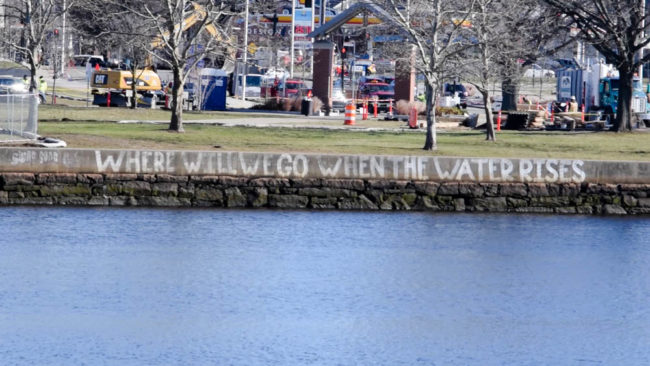The conference was primarily geared toward conveying the latest climate change data to the business community and civic leaders, as opposed to coming up with new data or outlining a plan, according to event organizer and Director of WaterFire Barnaby Evans. "(University of Rhode Island) and Brown have been researching this since the ‘70s and have been very articulate (about) what the challenges are," Evans said. But the business community was not necessarily aware of all of this research, he added.

75 participants — including representatives from the University, other academic institutions in-state, CVS and Bank of America — attended the workshop Tuesday evening. The intention was to "spark interest in the scope of the issues and put it in a Providence context," said Curt Spalding, professor of the practice of environment and society and an event organizer. For example, Evans hoped the workshop would clarify that Providence's hurricane barrier, while effective in the short term for mitigating storm surges, is not a long-term solution for sea level rise.
Presentations regarding the potential risks of flooding and sea level rise in Providence sparked both dismay and energy. "There's a sense of disability about this challenge in Rhode Island, at least in Providence," Spalding said. Evans added that some attendees were unaware of the immediacy of the effects of climate change in Providence.
Feelings of intimidation were ultimately joined by an enthusiasm for engagement. "There was a sense that there should be an organization that keeps this going, there was a lot of willingness to help each other," said Anne Tate, professor of architecture at the Rhode Island School of Design. Spalding stressed that it is not enough to think about physical resilience, such as strengthening hurricane barriers; community members must also consider the social resilience of communities and the higher instances of "social stress" that will likely be caused by climate events.
Tate believes Providence is uniquely situated to address sea level rise and other impending environmental changes. While Rhode Island is "at as much risk as any other city when it comes to sea level rise, … we have an unusual collection of academic resources," Tate said. This includes the "world-class" Marine Science Research Facility at the University of Rhode Island, "the creative input of RISD and the solid research backing from Brown," as well as work done by Johnson & Wales University and other institutions, she added.
"We feel like if we can lever these assets, Rhode Island and Providence can play a leading role in putting forward what are the imaginative and progressive ways to deal with climate change and sea level rise," Tate said.
To foster a more participatory process, attendees broke out into small discussion groups centered on various issues such as health and wellness, communications and outreach and leadership and infrastructure. They then wrote down the challenges and opportunities posed by climate crisis, followed by a discussion about potential short-term and long-term solutions. These ideas were collected by the event's organizers and will be further evaluated in the coming weeks.
Organizers designed the discussion sections to encourage constructive conversations that were not "all about the problems" and "not all about what somebody else should do," Tate said. Instead, they focused on how individuals can get involved in preparing Providence for climate change and the resources they need to do so. In one case, an attendee expressed they were "willing to generate a discussion in (their) business," about climate resiliency, but they "need help organizing that," Tate said.
Organizers hope that eventually there will be some concrete commitments to put the resources together to work alongside state and municipal government efforts to address climate change.
The effects of climate change will be felt "sooner than one hundred years" from now, Evans said. "We should start preparing for them now."
This story was authored by Alex Reice and originally appeared in the Brown Daily Herald.